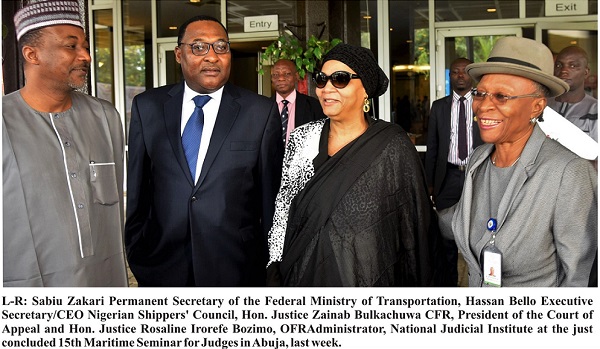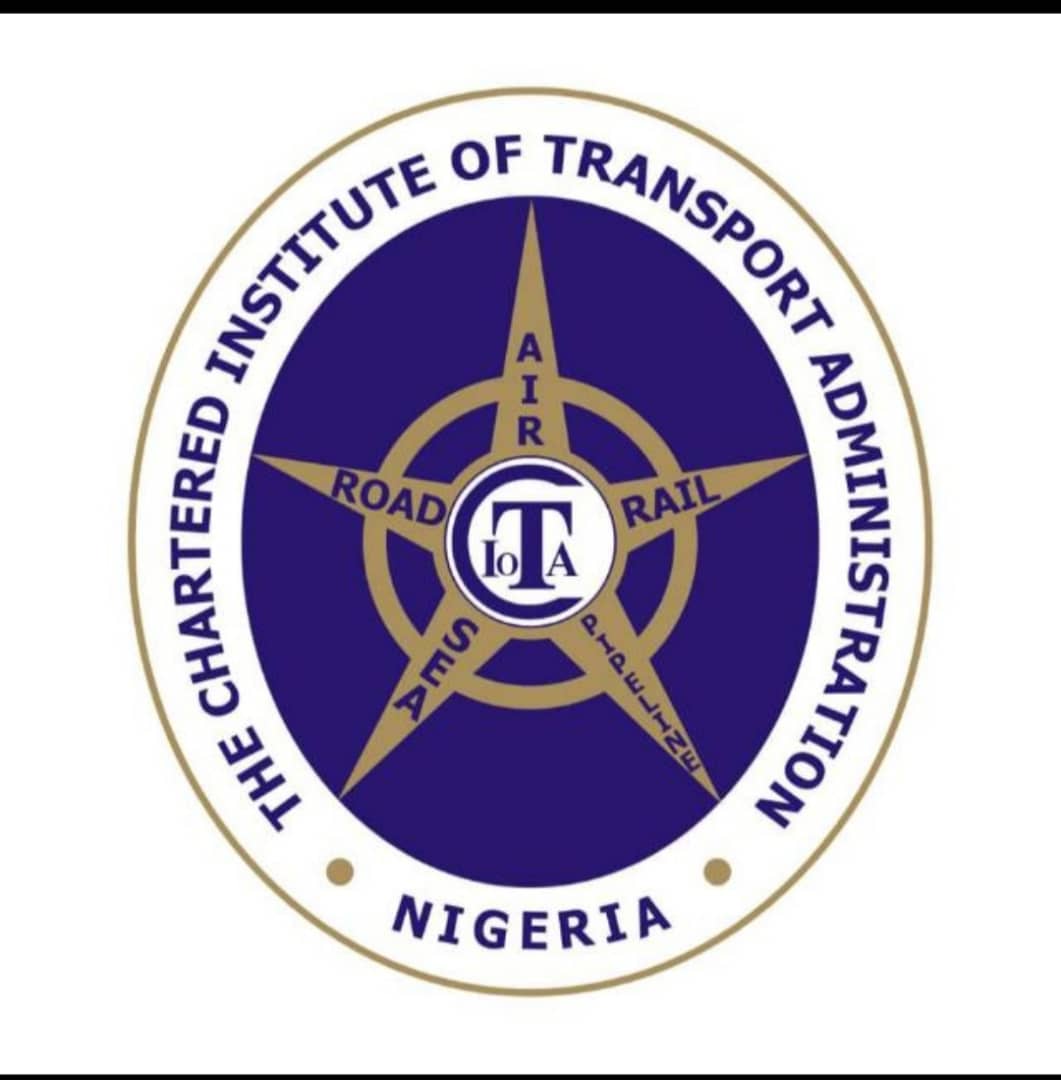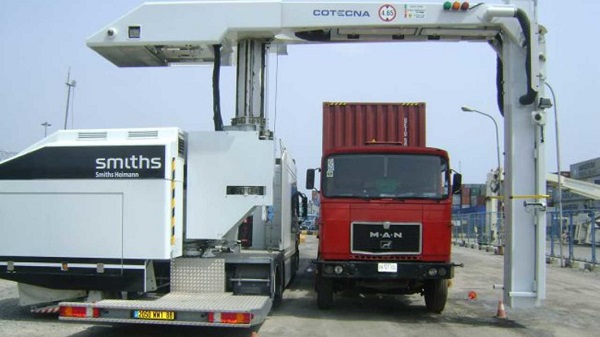A Bill To Regulate Rail, Land, Waterways Cargo Haulage Underway
*150 Judges, 100 Lawyers grace 15 maritime seminar for judges
*Mixed reactions trail proposed bill
The 15th edition of the International Maritime Seminar for Judges ended Thursday last week in Abuja with the Nigerian Shippers’ Council(NSC) proposing a bill to resolve the existing chaos in nation’s multimodal transport system.
Multimodal transportation is the effective inter-connectivity among the various modes of transportation, which include the sea, air, rail, land.
This, however, elicited mixed reactions from the audience made up of about 150 Judges, 100 lawyers of repute and other maritime and transport technocrats as well as distinguished participants.
The bill, according to Mrs. Mfon Usoro,the Secretary General of Abuja Memorandum of Understanding(MoU), in her presentation titled, “ Overview of the Proposed Liability Regime for Inland Carriage of Goods( on Road,Rail and Inland Waterways Transportation)”, seeks to address the absence of law and order in the carriage of goods within Nigeria.
She said that the proposed new regime would ensure that the laws of damage and delay are provided for even as it takes into concern the liability of the shipper or sender and carrier to declare dangerous goods and ensure that it is packaged for safety.
While suggesting some monitoring standards in her paper, Usoro noted that the proposed bill would also take care of incidence of short landing and short delivery of cargo, adding that the cargo owner will not only be adequately protected but will have a period of one year within which to lay claim in event of damage.
She further noted that the absence of a liability regime for inland transportation of cargo in contract of carriage is a major problem impeding the take off of inland dry ports across the country.
The proposed bill will ensure the registration of carriers or haulage companies, regulation of cargo and vehicle weight, drivers and their conducts, registration of a registering authority for proper driving test, licensing and ensure power of enforcement in event of breach.
The benefits of this bill include, the sanitization of the cargo haulage subsector, creation of capacity in the sector, business opportunities for the insurance companies, job opportunities for transport workers as well as safety of cargo and lives.
Speaking on relevance of the proposed bill in a session chaired by Justice Amina Augie of the Supreme Court, the Executive Secretary of NSC, Barr. Hassan Bello said, “ We want to have efficient inland connectivity, which has eluded the country because of the absence of law and order. There need to be efficient connectivity between the sea and the land. We need a structured legal regime that can handle the issue of delay, short landing of cargo, among other challenges. We know the infrastructure is not there and so no matter how efficient the terminals are, if they cannot convey goods out of the terminals, there will be problem’.
However, Justice Augie argued that there was the need for an Act to regulate the activities of the haulage operators, noting that if there was one the unfortunate incident of the tanker fire explosion on Otedola Bridge in Lagos recently that burnt over 54 vehicles and claimed numerous lives may not have happened because the preliminary report of its cause was said to be overload of product and sudden breakdown of the truck arising from the weight.
Fears were raised by some participants on certain aspects of the proposed bill, especially on the possible conflict of the emerging local law and some provisions of The Hamburg Rules, which is an International Conventions on Carriage of Goods by Sea. There was also the concern of which tier of the government among the Federal Government, State and the Local government should take the regulatory control in tax collection as well as where the jurisdiction of cases arising from the activities should reside among the courts.
In his reaction, Mike Igbokwe SAN, who saw the proposed regime as being protectionist in favour of the haulage operators, cautioned against importing and applying foreign laws in Nigeria without taking into consideration the peculiarities of the local environment.
“ What it means is that an offended passenger or cargo owner who goes to court cannot get compensation beyond what is stated in the bill”, he added, but was quickly reminded that the document is still a proposal awaiting enlarged stakeholders’ input.
As the proposed regime seeks to associate offences with the three tiers of governments and their statutory constitutional powers, Igbokwe noted that the practice as obtained now is that an offender can sue anybody irrespective of the roads, whether federal, state and local government.
The biannual event, which has since gone international is organized by the NSC under the auspices of Federal Ministry of Transportation in collaboration National Judicial Institute. It was first organized in 1995.
It affords the Judges and the judiciary in general the opportunity of getting acquainted with maritime practices and law for easy administration of cases because of the importance of the maritime sector to the economy.








